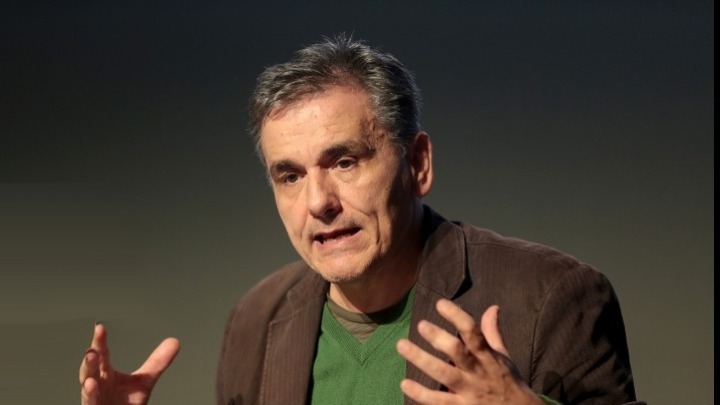Euclid Tsakalotos: Poul Thomsen suffers from short-term memory loss

SYRIZA MP and former finance minister Euclid Tsakalotos on Tuesday accused Poul Thomsen, head of the International Monetary Fund's Europe department, of "short-term memory loss" in a comment on Thomsen's speech at the London School of Economics.
Referring to the negotiations with the IMF in the years when he was finance minister, Tsakalotos made the following points:
1. The SYRIZA government had not voluntarily 'agreed' to high primary surplus targets but did so under considerable pressure from the lenders and, in spite of the pressure, the targets agreed upon were significantly lower than those agreed by the previous governments.
2. Exceeding the agreed targets was not a choice made by Greek government but the result of repeated miscalculations in the 'expert' IMF staff forecasts, which led to the imposition of additional austerity measures.
3. The IMF's intervention was always assymetrical and its decision not to participate in the programme was taken at the last minute. Right up to the end of the programme it "advised" Greece's lenders to reduce primary surplus targets and do more to ease Greece's debt but this pressure was 'toothless' in that there was never any threat that this must be done by a specific date to ensure the IMF's participation.
4. On the contrary, threats to Greece were systematic, as in 2017, with the imposition of a law to reduce pensions and the tax-free allowance, which the SYRIZA government finally managed to avert in 2018.
5. Thomsen's obsession on lower pensions and lower tax-free allowances harmed the IMF's scientific prestige. With forecasts for growth and surpluses that were not based on real economic conditions but used as a lever to push for antisocial policies. Even in early 2018, they predicted a 1 pct primary surplus.
6. Finally, at some point the IMF should decide if the high-level narrative for inclusive growth and alleviating disparities is just for show because the pressure exerted by Thomsen's group in 2015-2018 did anything but serve inclusive growth and bridging disparities.

